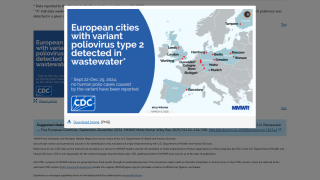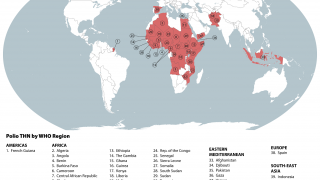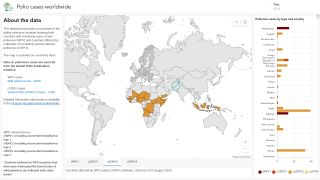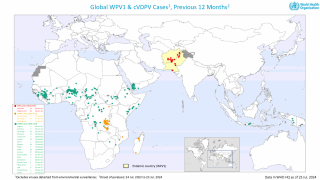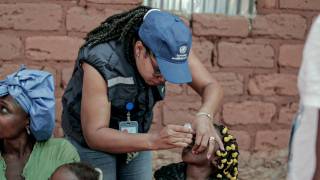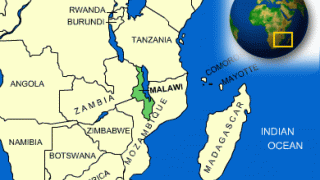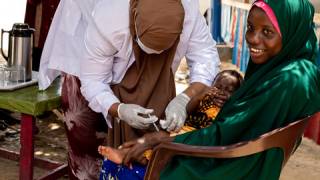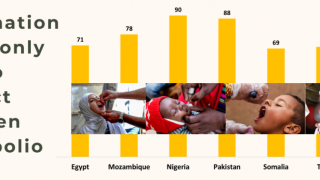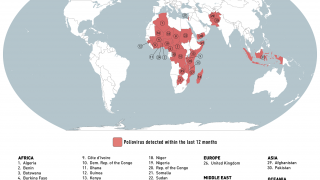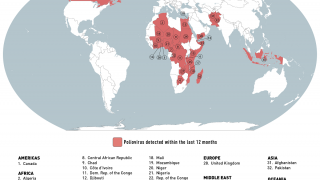Can Polio Vaccinations Reduce New York's Wastewater Detections

Recent news from the U.S. CDC confirmed wastewater testing had identified circulating polioviruses in at least five New York counties. While there has only been one confirmed vaccine-derived poliovirus type 2 (VDPV2) case, health and political leaders are concerned there may be additional polio cases reported in 2022.
The U.S. CDC Morbidity and Mortality Weekly Report early release issued on October 28, 2022, says public health efforts to prevent polio should focus on improving coverage with the inactivated polio vaccine (IPV).
While most persons living in lower New York are sufficiently immunized, unvaccinated or under-vaccinated persons living or working in Kings, Orange, Queens, Rockland, or Sullivan counties should complete the polio vaccination series to prevent additional paralytic cases and curtail transmission, stated the CDC.
In some counties , the polio vaccinated rate drops below 60%.
To heighten focus on this health issue, N.Y. Governor Kathy Hochul recently announced she was extending Executive Order 21.1 until November 8, 2022, and expanding IPV vaccination authorities for certain health providers.
The IPV vaccine has been used in the U.S. since 2000.
Previous research indicates three doses of IPV confer about 99% protection from paralytic poliomyelitis.
In addition, monitoring polio eradication progress in a population with high IPV coverage is complicated by using the oral polio vaccine (OPV) for routine vaccination and outbreak response in international settings.
The live OPV strain can persist in stool for several weeks after vaccination, and detecting these viruses in wastewater does not have the same public health implication as detecting a VDPV.
A potential solution may be the novel oral polio vaccine (nOPV2) polio vaccine.
This new vaccine is derived from the live, infectious virus, but it has been 'triple-locked.'
As a result, nOPV2 is genetically more stable than existing OPV, which is much less likely to mutate and cause paralysis.
In addition, the nOPV2 vaccine produces a gut reaction that protects vaccinated people from disease and stops transmission.
Since about 500 million people worldwide have already received the nOPV2 vaccine, deciphering which vaccine is shedding the virus is complicated.
The CDC says standardized methods of testing and poliovirus characterization need to be established if wastewater testing is to become more widespread in the U.S. because reliable sequencing and careful interpretation are required to characterize a finding in wastewater as either an OPV strain or a VDPV.
Lastly, and most importantly, the public health objectives for wastewater testing for poliovirus should be defined before its application and before the public health response is scaled up beyond the currently implicated communities at risk in New York.
Identifying geographies with connections to the existing low polio vaccination coverage can, even in the absence of wastewater testing, help target vaccination efforts.
However, these areas at risk for paralytic polio and poliovirus circulation might be considered for wastewater testing to prioritize or enhance vaccination efforts in the event of poliovirus detections.
Since many New Jersey and Connecticut residents commute to N.Y. for work, these states could launch wastewater testing too.
On October 27, 2022, the New York State Health Department issued a Polio Letter to Providers saying as the most trusted source of medical guidance for your patients and their families, we need your help to make sure that any child who is not vaccinated or up to date with polio immunizations gets all the recommended doses immediately.
As with any international gateway city, the New York City metro area welcomes visitors regardless of which polio vaccine they may have received.
In addition, the CDC says that people with certain immunodeficiency disorders can shed the poliovirus for long periods, during which the virus can continue to change and can infect an unvaccinated person.
Other polio outbreak news is posted at PrecisionVaccination.com/Polio.
PrecisionVaccinations publishes fact-checked, research-based vaccine news manually curated for mobile readers.
Our Trust Standards: Medical Advisory Committee

